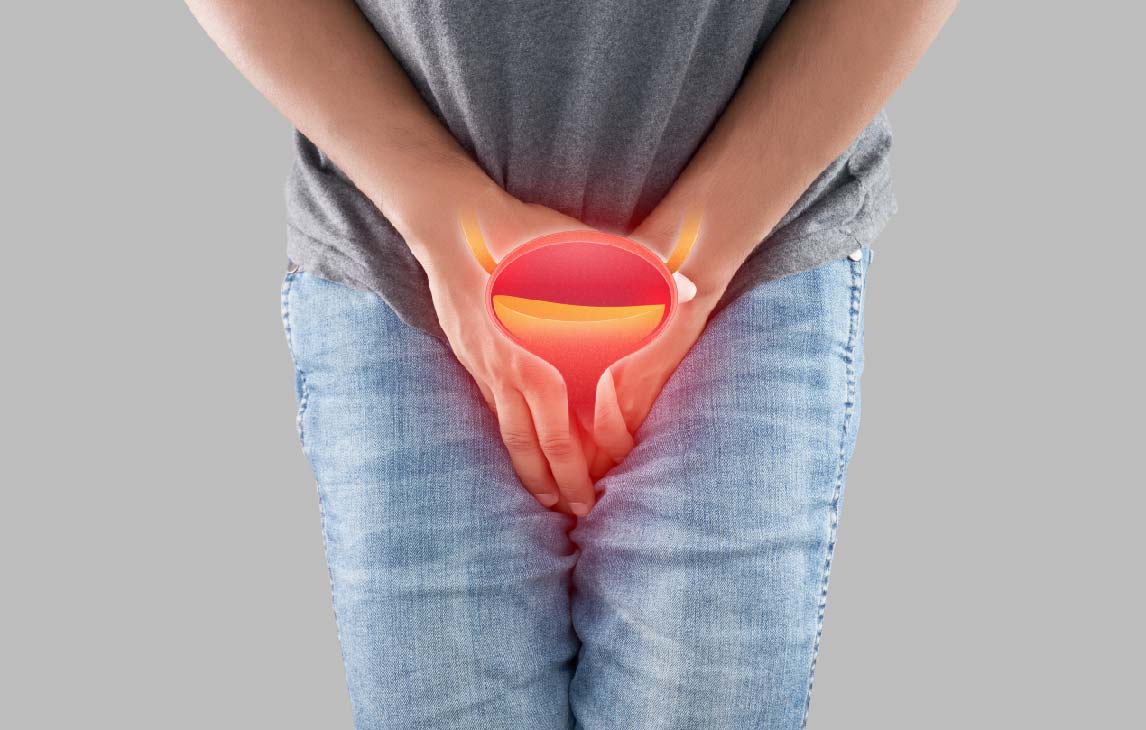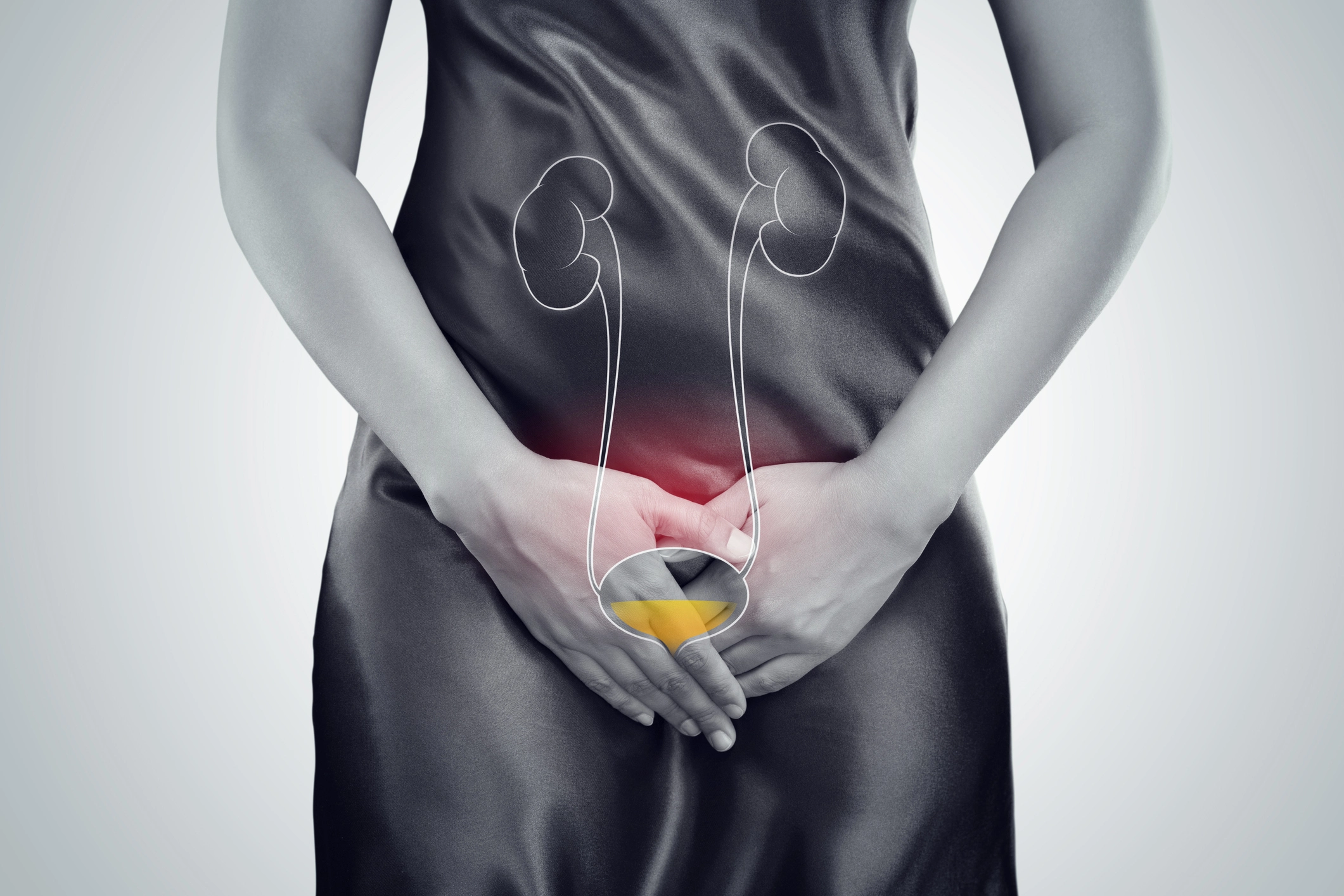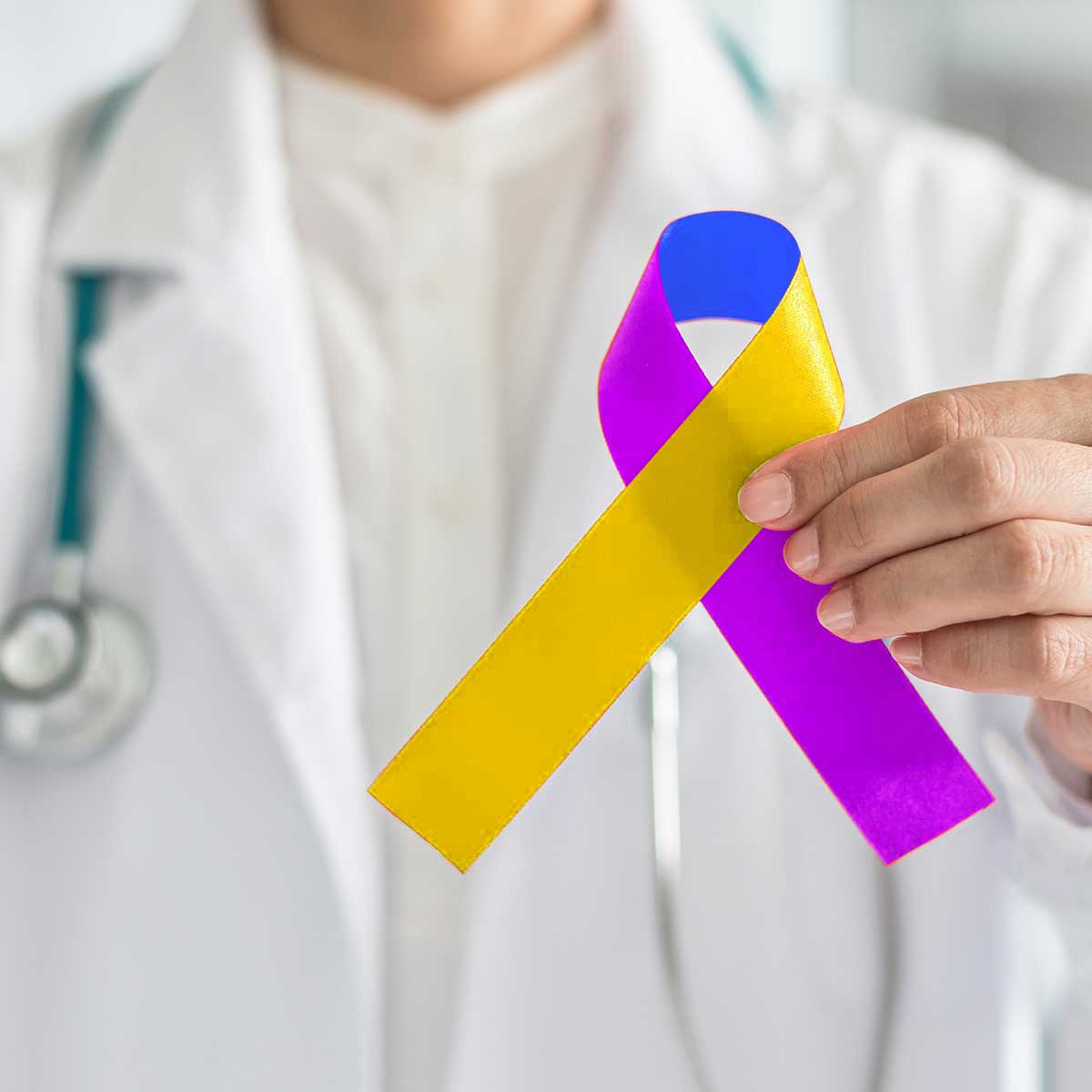Bladder Cancer
Bladder cancer develops in the tissues of the bladder, a hollow organ located in the pelvis that stores urine before it is expelled from the body. It is a relatively common cancer affecting men and women, with more than 80,000 new cases diagnosed in the United States each year.
Bladder cancer typically begins in the cells that line the inner surface of the bladder and may spread to nearby tissues and organs, including the prostate gland, urethra, uterus, vagina, rectum, and pelvic wall. Early diagnosis and treatment of bladder cancer are essential for a good prognosis, as it can be more challenging to treat once it has spread to other body parts.
What is the Bladders Function

The bladder’s walls are made of several layers of muscle tissue that contract and relax as needed to store and empty urine. The bladder’s inner lining is composed of transitional epithelium, a specialized tissue that can stretch and accommodate the bladder’s changing volume.
The bladder also contains nerves that provide feedback to the brain about the bladder’s fullness and urge to urinate. The average adult bladder can hold up to 12 ounces (about 350 ml) of urine before it needs to be emptied, although this can vary depending on an individual’s age, sex, and overall health.
What Can Cause Bladder Cancer
Here is a list of some of the potential causes of bladder cancer:
- Smoking: Smoking cigarettes or other tobacco products is one of the most significant risk factors for developing bladder cancer. Tobacco smoke contains harmful chemicals that can damage the bladder’s lining and increase the risk of cancer.
- Exposure to Certain Chemicals: Some people who work in industries where they are exposed to chemicals like benzene and other aromatic amines may have an increased risk of bladder cancer.
- Age: The risk of bladder cancer increases, and most cases are diagnosed in people over 55.
- Gender: Men are more likely to develop bladder cancer than women.
- Chronic Bladder Inflammation: Chronic bladder inflammation, which frequent urinary tract infections may cause, may increase the risk of developing bladder cancer.
- Previous Cancer Treatments: Certain cancer treatments, such as radiation therapy or chemotherapy, may increase the risk of developing bladder cancer.
- Genetics: Some genetic mutations or inherited conditions, such as Lynch syndrome, may increase the risk of developing bladder cancer.
- Personal or Family History of Bladder Cancer: People who have previously had bladder cancer or have a family history of the disease may be at an increased risk.
Signs and Symptoms of Bladder Cancer
Bladder symptoms can often be considered simple issues such as a urinary tract infection. It is essential to listen to your body and make an appointment with Z Urology when something feels off to assess the issue immediately! Here is a list of possible signs and symptoms of bladder cancer (please note these symptoms do not necessarily, mean that you have bladder cancer):
- Blood in the urine (hematuria)
- Painful urination (dysuria)
- Frequent urination
- Urinary urgency
- Urinary incontinence
- Lower back pain
- Pelvic pain
- Fatigue
- Weight loss
- Swelling in the legs
- Anemia
- Loss of appetite
- Bone pain (if cancer has spread to the bones)
Treatments For Bladder Cancer
Below is a list of treatments for bladder cancer:
Surgery
Surgery is one of the main treatment options for bladder cancer, and several types of surgeries can be performed depending on the stage and location of cancer. Surgery aims to remove the cancerous tissue from the bladder while preserving as much of the bladder function as possible.
- Transurethral Resection of Bladder Tumor (TURBT): TURBT is the most common surgery for early-stage bladder cancer. During the procedure, a surgeon inserts a tool called a cystoscope through the urethra and removes the tumor using a special wire loop.
- Radical Cystectomy: Radical Cystectomy is a more extensive surgery that may be necessary for advanced or aggressive bladder cancer. This surgery removes the entire bladder, nearby lymph nodes, and other affected tissues. In men, the prostate and seminal vesicles are also removed, and in women, the uterus, ovaries, and part of the vagina may be removed as well. In some cases, a partial cystectomy may be an option. This surgery involves removing only a portion of the bladder containing the cancerous tissue, and it is typically reserved for patients with small tumors in specific areas of the bladder.
Intravesical Therapy

The type of drug used in intravesical therapy may vary depending on the stage and grade of the bladder cancer. Common medications this therapy uses include Bacillus Calmette-Guérin (BCG), mitomycin, gemcitabine and docetaxel. The treatment can cause some side effects, such as bladder irritation, discomfort, and blood in the urine, or even more serious infections including sepsis.
Chemotherapy
Chemotherapy is a cancer treatment that uses drugs to kill or stop cancer cells from multiplying. Chemotherapy is typically used when cancer has spread beyond its original site or is at high risk. Chemotherapy can be given in many ways, including intravenous (IV) injection, pill form, or topical cream.
Chemotherapy attacks rapidly dividing cells, which is why it is effective against cancer cells. However, it can also damage healthy cells, leading to side effects such as nausea, fatigue, hair loss, and decreased immunity. The specific drugs used in chemotherapy depend on the type of cancer being treated and the stage of cancer. It is often combined with other treatments, such as surgery or radiation therapy, to achieve the best possible outcome for the patient.
Radiation therapy
Radiation therapy is a cancer treatment that uses high-energy radiation to kill cancer cells or shrink tumors. It is often combined with other treatments, such as surgery or chemotherapy, to treat bladder cancer. Radiation therapy may be used before surgery to shrink the tumor or kill any remaining cancer cells after surgery.
Radiation may also be used to relieve symptoms caused by bladder cancer, such as pain or bleeding. The radiation can be delivered externally, using a machine called a linear accelerator, or internally, using a radioactive source placed inside the bladder. Like other cancer treatments, radiation therapy can have side effects, such as fatigue, skin irritation, and bladder irritation, but these can often be managed with medication or other strategies.
Immunotherapy
Immunotherapy is a type of treatment that is used to help the immune system fight cancer. It is a newer type of therapy that has shown promise in treating bladder cancer. Immunotherapy works by using medications to help stimulate the immune system to recognize and attack cancer cells.
One type of immunotherapy that has been approved for the treatment of bladder cancer is called a checkpoint inhibitor. These medications help to block proteins that cancer cells use to avoid detection by the immune system. By blocking these proteins, the immune system can recognize and attack cancer cells. Immunotherapy can be given alone or in combination with other treatments, such as chemotherapy or radiation therapy.
Targeted therapy
Targeted therapy is a type of cancer treatment that uses drugs to target specific proteins or genes that contribute to the growth and spread of cancer cells. These drugs block the signals that cancer cells use to grow and divide, sparing healthy cells. Targeted therapy is often used with chemotherapy to treat advanced bladder cancer that has spread to other body parts.
The drugs used in targeted therapy are designed to target specific proteins or genes unique to cancer cells, so they have fewer side effects than traditional chemotherapy. Some common targeted therapy drugs for bladder cancer include pembrolizumab, atezolizumab, and nivolumab. While targeted therapy has shown promising results for some patients with advanced bladder cancer, it is not effective for everyone. More research is needed to determine the best treatment approach.
Recovery From Bladder Cancer

During recovery, it is also essential to make lifestyle changes to promote overall health and reduce the risk of cancer recurrence. Lifestyle changes may include:
- Adopting a healthy diet and exercise routine.
- Quitting smoking.
- Reducing exposure to environmental toxins.
Support from friends, family, and mental health professionals may also help cope with the physical and emotional challenges of recovering from bladder cancer.
A comprehensive approach to recovery that includes medical treatment, lifestyle changes, and emotional support can help patients achieve optimal health and well-being after bladder cancer.
How to Prevent Bladder Cancer
- Quit Smoking: Another way to reduce the risk of bladder cancer is to quit smoking or avoid tobacco use altogether. Smoking is a significant risk factor for bladder cancer; individuals who smoke are at a much higher risk of developing the disease than those who do not. Quitting smoking can be challenging, but many resources are available to help individuals quit, including nicotine replacement therapy, support groups, and counseling.
- Stay Hydrated: Drinking plenty of fluids helps flush out toxins from the bladder and reduces the concentration of carcinogens in the urine, reducing the risk of bladder cancer.
- Eat a Healthy Diet: Maintaining a healthy diet and lifestyle is also vital for reducing the risk of bladder cancer. Eating a diet high in fruits and vegetables and low in processed foods and red meat can help reduce the risk of many types of cancer, including bladder cancer.
- Avoid Exposure to Harmful Chemicals: One of the most important is exposure to harmful chemicals and toxins known to increase the risk of this disease. For example, individuals working in specific industries, such as chemical manufacturing or hairdressing, may be exposed to chemicals associated with an increased risk of bladder cancer.
Avoid exposure to harmful chemicals such as arsenic, benzene, and other industrial chemicals, as these have been linked to an increased risk of bladder cancer. Following all safety protocols and using protective equipment, such as gloves and masks, is essential when handling these substances.
- Exercise Regularly: Regular exercise can help reduce the risk of bladder cancer by maintaining a healthy weight and boosting the immune system.
- Manage Chronic Bladder Conditions: Chronic bladder conditions such as bladder infections or inflammation can increase the risk of bladder cancer.
Ways to Keep Your Bladder Healthy and Happy
No one is happy when your bladder is irritated, or you have frequent urinary symptoms. Here is a list of suggestions to help keep your bladder healthy and happy:
- Drink Plenty of Water: Staying hydrated is essential to keep the bladder healthy. Drinking enough water helps to flush out toxins and bacteria from the bladder, reducing the risk of bladder infections.
- Avoid Holding in Urine: Holding urine for too long can pressure the bladder muscles and cause damage over time. We recommend urinating when you have the urge to do so. Try not to urinate “just because,” as this can lead to improper bladder function.
- Avoid Smoking: Smoking has been linked to an increased risk of bladder cancer, so avoiding smoking and secondhand smoke is essential.
- Practice Pelvic Floor Exercises: Kegel exercises can help to strengthen the muscles that support the bladder and reduce the risk of urinary incontinence.
- Maintain a Healthy Weight: Being overweight or obese can put additional pressure on the bladder, leading to urinary incontinence and other bladder problems.
- Avoid Bladder Irritants: Certain foods and drinks, such as caffeine, alcohol, and spicy foods, can irritate the bladder and cause urinary incontinence or frequent urination.
- Practice Good Hygiene: Proper hygiene can help to prevent bladder infections. Wiping front to back after using the bathroom and showering regularly are important habits to maintain good bladder health.
- Seek Medical Attention for Bladder Problems: If you experience any symptoms of bladder problems, such as pain, frequent urination, or blood in the urine, it is crucial to seek medical attention promptly.
Why Z Urology
Z Urology in Coral Springs, Pompano Beach, Fort Lauderdale, and Boca Raton is a leading center for urology issues and treatment centers. With our experienced and skilled team of urologists and state-of-the-art facilities, Z Urology provides personalized and comprehensive care for all urological conditions.
One of the main advantages of choosing Z Urology is our commitment to utilizing the latest and most advanced technology in urologic care. Some of our advanced technology includes robotic surgery and minimally invasive procedures that reduce pain, scarring, and recovery time. Patients can trust that they receive the most effective and efficient treatment.
Z Urology takes a patient-centered approach to care, focusing on individualized treatment plans tailored to meet each patient’s unique needs and goals. Patients are involved in every step of their care, from diagnosis to treatment to follow-up care. We provide the education and support patients need to manage their condition and achieve optimal outcomes.
Finally, Z Urology is committed to providing our patients with a compassionate and supportive environment. We treat patients with respect and understanding from the moment you walk through the door. The team at Z Urology understands that urological conditions can be stressful and overwhelming, and we go above and beyond to provide patients with the comfort and reassurance they need during this challenging time.

